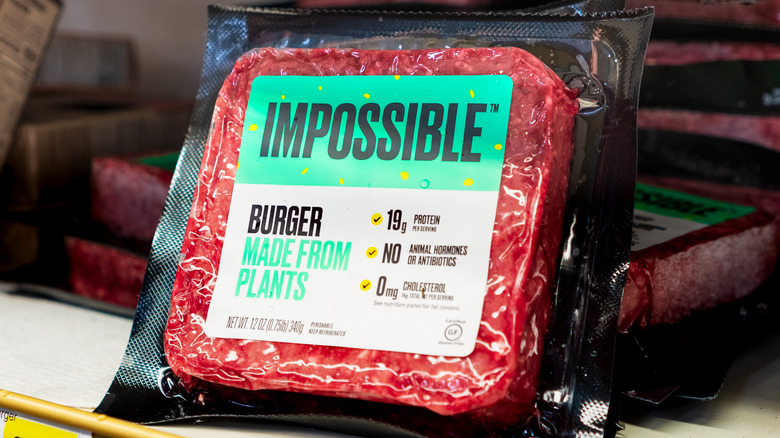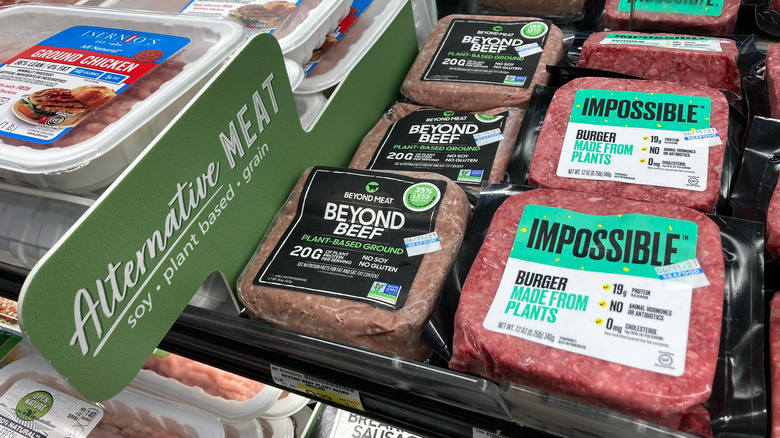Why Impossible Foods Is Firing 6% Of Its Workforce
Plant-based meats have risen in popularity in recent years (via Good Food Institute), which is a good thing because they have a much smaller environmental impact than actual meat. Reader's Digest points out that it takes between 2,000 and 8,000 gallons of water to produce one pound of beef, while it only takes about 300 gallons of water to produce a pound of tofu. While even the most dedicated carnivores admit that plant-based meats are better for the environment, businesses that produce these products have struggled in recent months.
In October of 2022, plant-based meat producer Planterra announced that it would end production of all products by the end of 2022, per Food Dive. Considering that Planterra was founded in 2020, the rapid shutdown clearly signals financial difficulty. Earlier this year, Beyond Meat reported a massive $97 million net loss over last year's sales, followed by a reported workforce reduction of 4% (via Food Navigator). There are a variety of reasons that the plant-based meat industry is struggling, and Impossible Foods CEO Peter McGuinness shared some thoughts on the matter in an announcement this week.
Removing redundant positions and focusing on marketing
Although plant-based meat sales saw a whopping 45% increase in 2020, that growth has not continued into 2021 and 2022, according to the Good Food Institute. As a result, plant-based meat companies like Impossible Foods are making adjustments to their business models. Food Navigator-USA was privy to an email from CEO Peter McGuinness to Impossible Foods staff where he laid out the reasons for his plan to restructure and let go roughly 6% of the company's workforce. Citing redundancy of some positions — rather than performance — McGuinness explained that the restructuring would allow Impossible Foods to become more efficient and focus on the essential business priorities.
Those priorities, according to the CEO, include innovation, as well as marketing, something the plant-based meat industry hasn't done very well. McGuinness counts Impossible Foods among the companies that haven't done a very good job of communicating with consumers about the benefits of plant-based foods, and he believes that clear and consistent messaging about alternative meat's nutritional and environmental benefits is vital for growth. Coupled with the company's recent launch of Impossible Bowls, single-serve plant-based frozen meals, McGuinness is clearly looking to shape and grow the company, as well as the entire industry.

